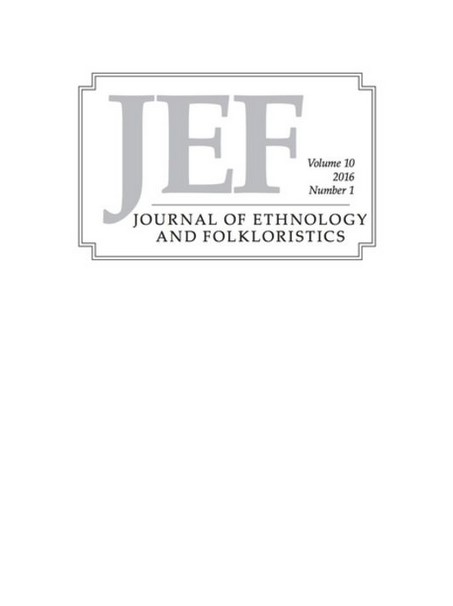Chuvash ‘Paganism’ at the Turn of the 21st Century: Traditional Rituals in the Religious Practice of Volga-Urals Chuvash Groups
Chuvash ‘Paganism’ at the Turn of the 21st Century: Traditional Rituals in the Religious Practice of Volga-Urals Chuvash Groups
Author(s): Ekaterina Iagafova, Valeria V. BondarevaSubject(s): Cultural history, Customs / Folklore, Ethnohistory, Recent History (1900 till today), Comparative Studies of Religion, Ethnic Minorities Studies, Sociology of Religion, History of Religion, Identity of Collectives
Published by: Tartu Ülikool, Eesti Rahva Muuseum, Eesti Kirjandusmuuseum
Keywords: Chuvash; paganism; traditional rituals; religious practices; the Urals–Volga region; ethno-confessional groups; ceremonies;
Summary/Abstract: Traditional rituals formed the basis of ethnic Chuvash culture, and are still relevant in today’s festive and ritual culture, primarily among Chuvash ‘pagan’ ethnoreligious groups. Today among the unbaptised Chuvash there is, with varying degrees of preservation, a set of ideas about the spirits of nature and the patron deity of different fields of life, practice of ritual prayer and sacrifice, and festive culture. The focus of ritual practice is the cult of the Supreme God Tura (Tură) and the ancestors, who during the calendar year appear in a single complex and in strict sequence. Traditional rituals play an essential role in the funeral and memorial rites and customs of the Chuvash. Thus, ‘pagan’ elements are characteristic not only of the unbaptised Chuvash, but also of some local groups of Christians and Muslims, for example ritual mourning of the dead, weekly commemoration on Thursday evenings until the ritual of ‘seeing off the soul’, ritual singing, sacrificing and ‘feeding’ souls of the dead on remembrance days, and other rituals and their elements. These ‘pagan’ elements in the culture of the Orthodox Chuvash and Chuvash Muslims living in ethnically mixed villages with Russians, Mordovians and Tatars both constitute the basis of their ethnic and cultural identity as Chuvash and contribute to the preservation of their ethnicity. Chuvash ‘paganism’, despite centuries of influence from Russian Orthodox and Muslim Tatar traditions, has a moderating influence over contemporary modernisation and is an element in religious practices of Chuvash confessional communities that is an important resource for the formation and development of ethnic and cultural identity.
Journal: Journal of Ethnology and Folkloristics
- Issue Year: XIV/2020
- Issue No: 1
- Page Range: 111-120
- Page Count: 10
- Language: English

